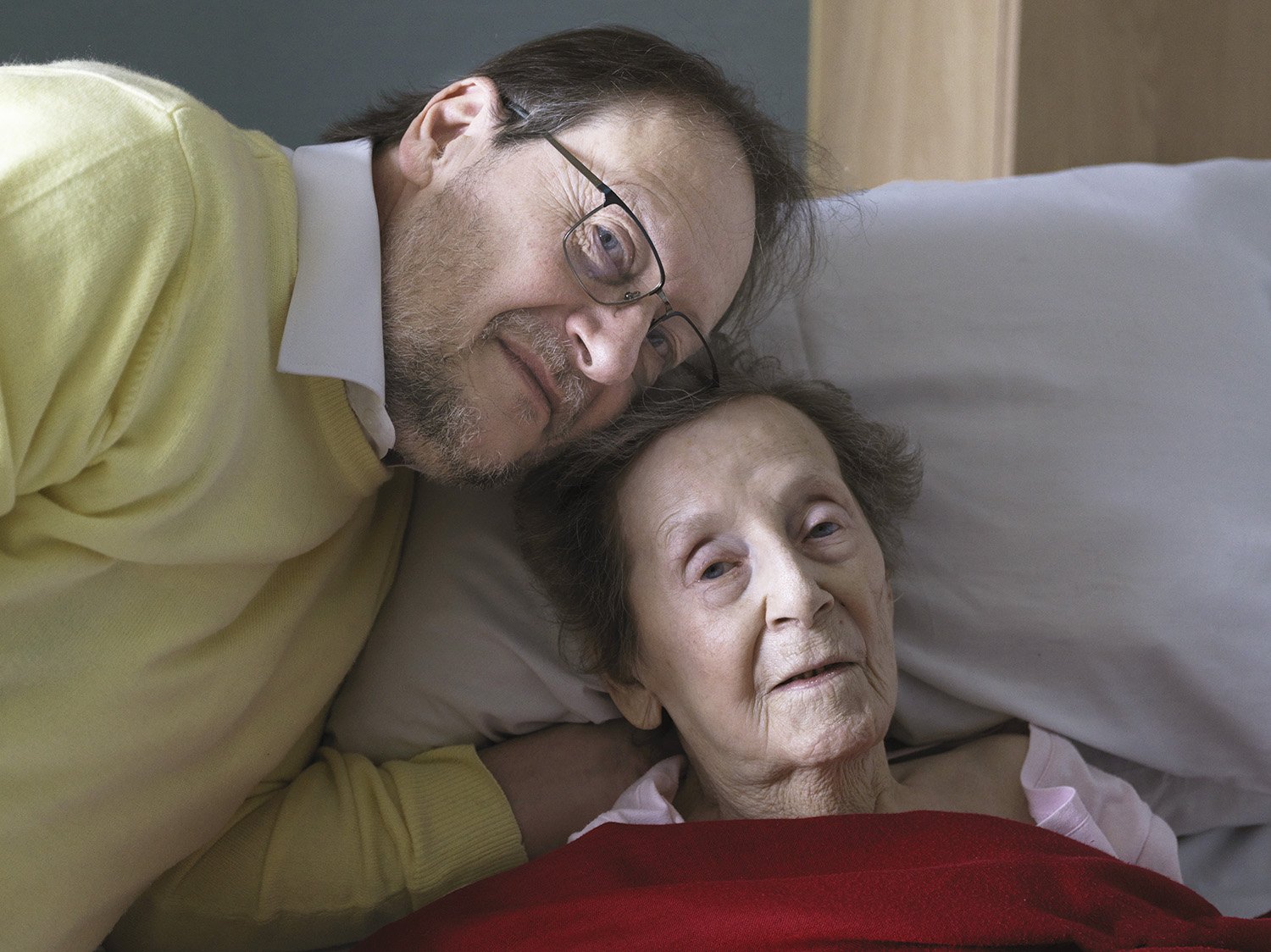What matters most?
Philip
Philip's mum Shirley received palliative hospice care at St Kentigern’s Hospice in North Wales. As she approached the later years of her life, she suffered from various health conditions which masked to some degree her underlying condition.
Known to have kidney failure she had been given iron transfusions and Philip had asked her a few times over the years about why she kept becoming anaemic; her answer was always ‘I don’t really want to know.’ He believed that his mum had an inkling that there was something more serious going on with her health. After her symptoms began to increase, she finally agreed to have a few tests, and a scan revealed that she had a large tumour on her bowel and she was diagnosed with bowel cancer. She saw a colleague of her son’s, who is a bowel surgeon to discuss operations. The family spoke about her treatment, but Shirley decided against it “I’m very old and I really don’t want a colostomy, I would struggle to cope with it, can I just leave things alone?”
After taking this decision not to receive treatment Shirley’s condition progressed rapidly. She stopped eating soon after the discussion with the bowel surgeon and was only drinking water, thankfully she was not in pain. Very quickly after diagnosis, she was able to go into St Kentigern’s hospice in St Asaph, where they aided her last few weeks as her body gradually shut down.
Philip had always had open discussions with his mum about the end of life as she grew older. “We have talked as she's gotten older and frailer, about where she thought that life was taking her. She's had both hips replaced, she's had lots of stents into the arteries of her heart, so she's been becoming less and less mobile, and more and more dependent on daytime TV for her relaxation. We've talked about the end of life and her wishes moving forward. She wasn't and isn't scared about dying. She's scared about the mechanism of how she dies, and not having control. She fears being in a situation where she becomes a burden. She doesn’t want to be a burden on anyone. She constantly says ‘thank you’ when people visit her, we just tell her that’s what families do.”
Initially, Shirley did want to stay at home, but knowing that she would need nighttime care and with her health deteriorating quickly she decided a hospice would be a better option. Finding St Kentigern’s Hospice was a relief for the family and the staff quickly put them at ease. “The Hospice was a revelation; I was amazed by how kind the staff were, and it made a huge difference in relieving the family’s anxiety as well as Shirley’s. I thought I knew about hospices, but really I had no idea, and I can't put a price on that finding St Kentigern’s.”
Shirley’s partner John was nearly 90 at the time of Shirley’s diagnosis so helping with homecare would have been too much for him. Philip praised the GPs who spoke to Shirley about her thoughts and concerns and ensured a hospice space was found quickly as her health worsened. Events with Shirley’s illness progressed at a pace that seemed unfathomable upon first diagnosis, but she felt that having a more confirmed timetable for the short future towards the end was a blessing.
As days progressed and with the help of the hospice, Philip found himself spending more quality time with his mum. “In here nothing is getting in the way of conversations. For me, it's like being a child with a mother again. 60 years on from when I was born that is really nice, because we're having conversations with each other that I wouldn't have thought she was able to have. She's not normally demonstrably affectionate, and yet she's being affectionate now to us, to my children and my grandchildren. She loves it, it's almost as if she's discovered the point to life, at the point at which life is ending. It's been a really beautiful time for us and it hasn't been scary.”














